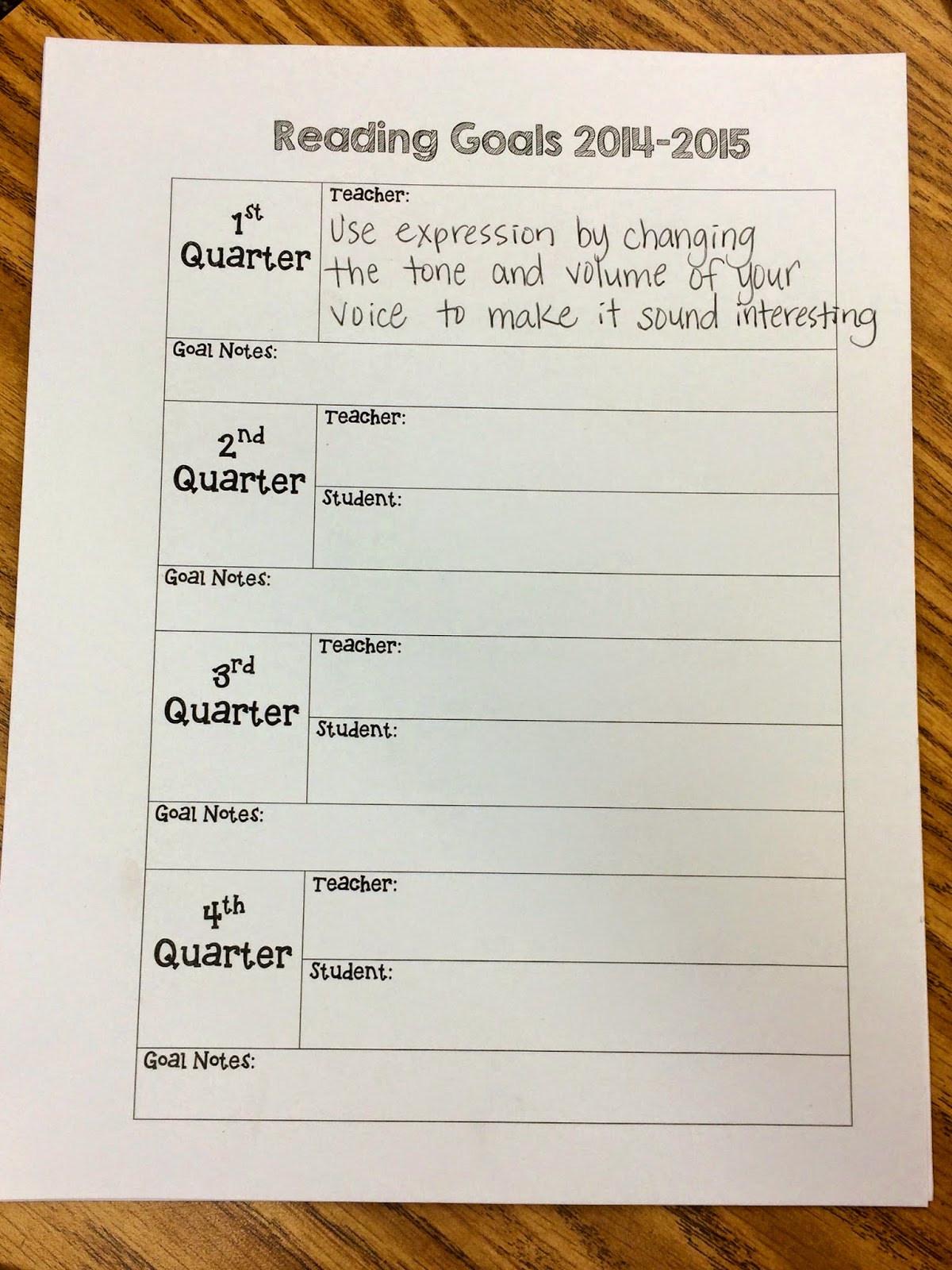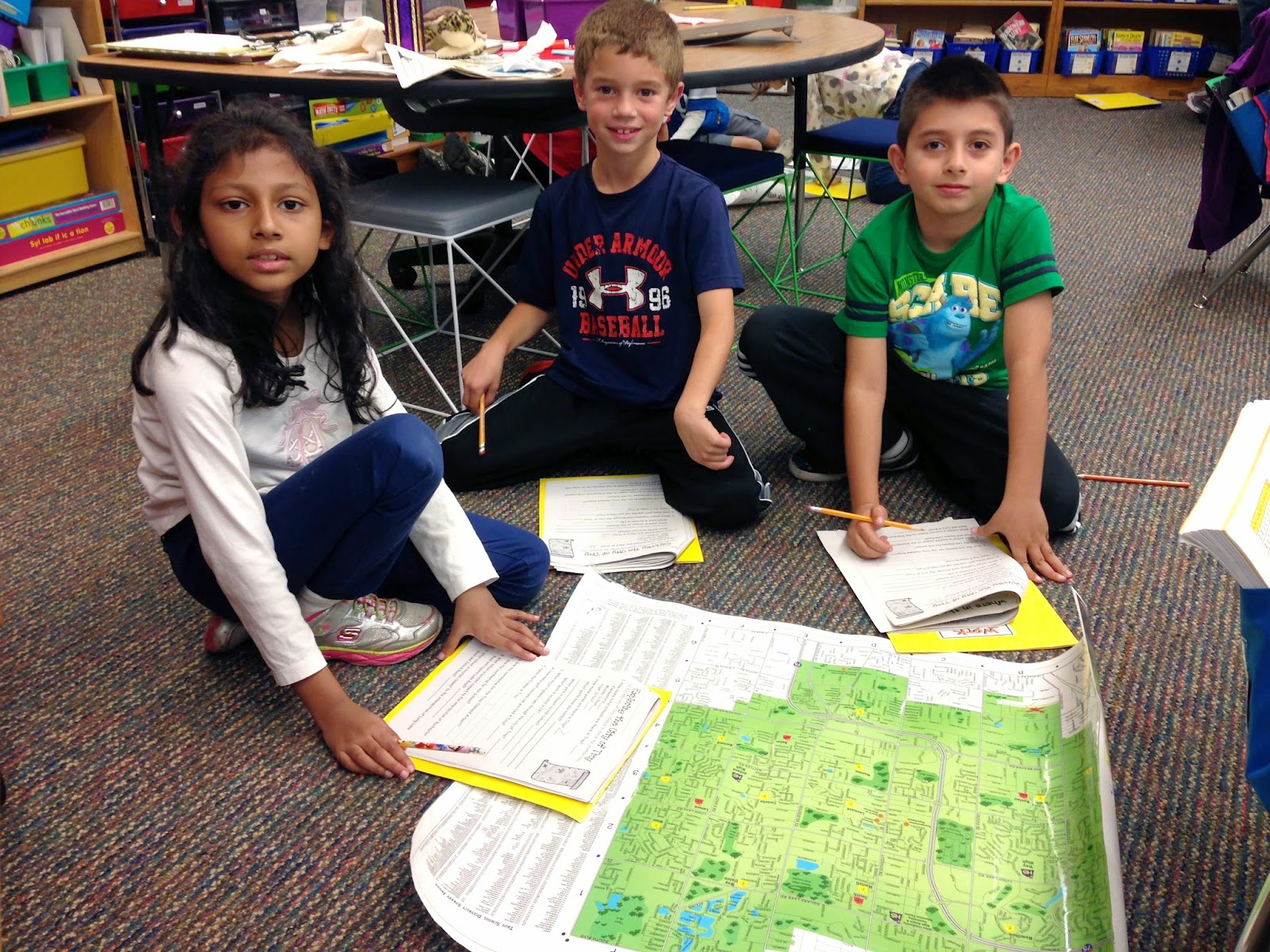Reading Workshop:
This week students learned reading strategies to help them pronounce tricky words by chunking multi-syllable words into smaller parts and looking for words they know inside the tricky word. Students also learned how to use context clues to solve words that they are able to pronounce but do not understand.
 |
| Students show their understanding of the reading strategies by writing about how they use them on IDR task sheets. |
Students are also beginning to meet with their teachers for goal-setting conferences. All students are given a recommended color code that corresponds to a reading level in our classroom library when choosing "just right" books. Based on what we have noticed when reading with them so far this year, we are also giving each student a reading goal to work on for the first card marking.
 |
| Students keep track of their color code (reading level) in their reading folder. |
 |
| Students' goals are recorded on a Reading Goals sheet that is kept in their 3rd Grade Goals folder. |
Writing Workshop:
Students are continuing to improve their narrative writing by making the beginning of their story (the "lead") more engaging to an audience. We taught students 4 different types of leads this week: Talking Lead, Action Lead, Snapshot Lead, and Sound Effect Lead. Students loved sharing their leads with their classmates in our Author Share Chair.
Math:
Students took their first fluency fact quizzes this week. Be sure to continue helping your child study his or her facts at home! The fact triangles that came home in the fluency folder last week are a great way to help your child study multiplication and division facts at the same time! This week in class, we reviewed the 5s, 2s, 10s, and 9s with additional story problem practice. The 3s multiplication and division facts were also introduced.
Social Studies:
We finished up our "Where in the World is Troy?" geography unit and are now preparing for the test on Tuesday, September 30th. A study guide came home with your child on Wednesday along with the corrected geography book that they completed in class. A digital copy of the study guide was also sent to you via email last week. Please help your child prepare for the test at home by completing the labeling practice that was attached to the study guide. Below are photos of students completing a scavenger hunt of Troy using a large city map.
 |
| Faisal helps the class complete a sort where students had to differentiate between continents, countries, and states. |
All-Star of the Week:
Elexis was our first All-Star of the Week! She loved sharing special items from her sharing sack including a stuffed turtle that was given to her by her grandparents. The stuffed turtle represented a real turtle whose trek we were able to track on the Internet. She also shared great family photos and brought her favorite book, Wacky Wednesday, to school for a read aloud. Her mom wrote a very creative and thoughtful letter to the class called "The ABC's of Elexis." It helped us learn lots of new and fun things about her!
 |
| Mom and sister joined Elexis as her Lunch Buddies at school. |
 |
| Classmates wrote compliments for Elexis that were made into a special book for her. |
 |
| Elexis's photos, parent letter, and favorite book are displayed in the classroom for the week. |












































